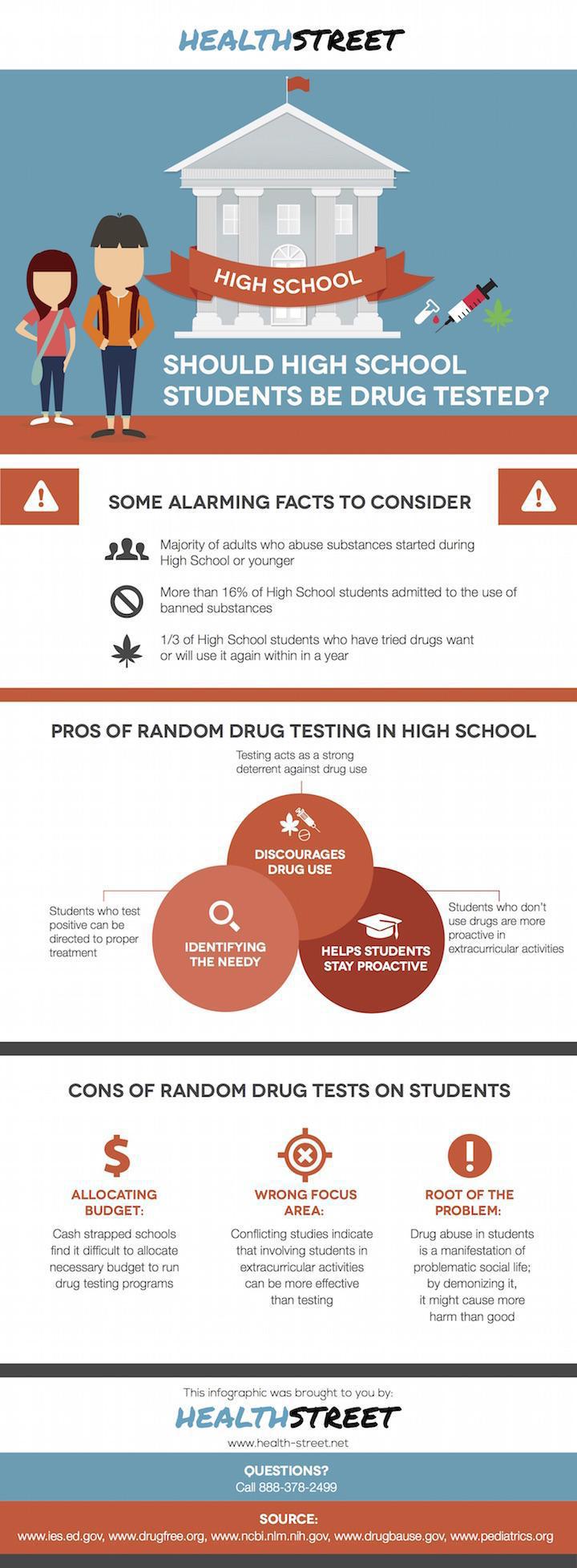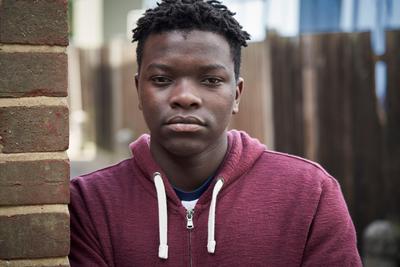Should High School Students be Drug Tested?
Drug test all high school students to reduce drug use and save lives! Sounds like a slam dunk, right? Upon closer examination, there are both pros and cons to going down this path. Learn the details of the debate.
Listen to article

Drug Testing High School Students
It sounded like a great idea when I first heard it: drug test high school students! Yet it's an idea wrapped in controversy. While substance use has declined over the last decade, almost 10 percent of the nation's teens report the use of illicit drugs within the last month. And like most parents, I'm enormously concerned about the devastating implications of illicit drug use on our adolescents. So, I've attempted to explore both sides of a question that doesn't come with an easy answer.
Pros of Drug Testing High School Students
1. Random Tests Discourage Drug Use
If students know they can be subject to drug tests at any time, it's a clear deterrent to partaking in drug use. More subtly, a random drug testing policy can also can aid those kids facing peer pressure to use, or who are on the fence, because it provides them with an easy excuse to say no to drugs.
2. Identifying Students in Need of Help
Drug testing is typically just one component to a larger system. A program combining prevention, intervention, counseling and a treatment plan synergistically work together to help combat students' drug use. And when a student tests positive, it's recommended that schools focus on helping the students deal with their usage rather than punishing them.
3. Evidence Leans Towards Effectiveness
Random drug testing in schools is intended to curb illicit drug use, but the question remains: is it even effective? While reports of effectiveness are conflicting, The Supreme Court has stood by their decision to allow schools to drug test on a random basis. At least one recent study shows that drug testing can, in fact, help. The National Center for Education Evaluation reports that students involved in extracurricular activities in schools that conducted drug testing had less substance use than comparable students from schools without drug testing.
Cons of Testing HS Students
1. The Cost of Testing
With schools across the country tightening their budgets, the added expense of drug testing can be daunting for struggling school systems. Sharon Levy of the American Academy of Pediatrics estimates only 1 positive for every 125 students tested, thus equating to a cost of around $3,000 for each positive result. These funds could be earmarked for prevention programs instead.
2. Focusing on The Wrong Area
It's been proven that a student's involvement in extracurricular activities is one of the best ways to prevent drug abuse. By schools turning their focus on engaging their students in a meaningful high school experience, it could open up a greater opportunity to set up their kids for healthy decision-making in all aspects of life. Devoting efforts to this holistic approach might, in the long run, stop more kids from partaking in illicit drugs.
3. Drugs are not the Core Problem
Teenage substance abuse is frequently a manifestation of a child's problematic home life or inability to foster healthy social relations. Teens who are suffering often use drugs as a form of self-medication. By punishing teen users, the potential for academic harm increases, perpetuating an already precarious cycle of drug abuse and low self-esteem. Treatment and prevention should remain the top priority - with or without a complementary drug testing program. In any case, demonizing the students who test positive or moralizing about their behavior is likely to backfire.
So... Should High School Students be Tested for Drugs?
The debate over testing HS students continues, mostly centering on the effectiveness, the cost, and the possibility of infringing on students' rights. But when concerned parents and faculty turn to testing, it can serve as a way of generating help for the child in need to get treatment and related services. Only time and further research will tell if the benefits of testing programs in high school outweigh the negatives. But don't punt in forming your own opinion on this one, because the train is departing the station. More and more schools are moving ahead with a policy of random drug screenings, with the hope of changing a child's life, even if just one at a time.





